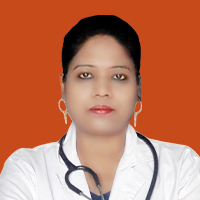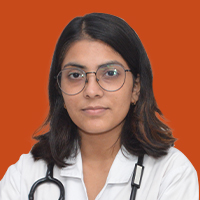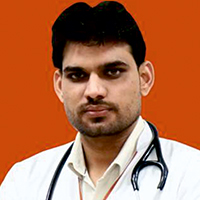

Successful Treatments
Clinics
Doctors
What is Leprosy?
Leprosy (also called Hansen's disease) is a persistent infection which generally impacts your skin, nerves and sometimes your muscles, eyes, and nose. It's caused by a slow growing bacteria called Mycobacterium leprae. Leprosy isn't highly contagious and could be treated with Ayurvedic remedies. But if you leave it untreated, it could cause serious skin damage, nerve injury, and even disability.
If you see any strange patches on your skin or areas of numbness, you should immediately get Ayurvedic help. Our expert Ayurvedic doctors provide holistic support to manage leprosy naturally and avoid further complications.
How does leprosy spread?
Leprosy spreads through long and close contact with an untreated person, usually via droplets when they cough or sneeze. But do note that you can not get leprosy by touching or sharing food. If your immunity is good, there is a very small chance that you will be infected even if you are exposed.
Types of Leprosy
Doctors divide leprosy into six types based on your severity and symptoms:
Intermediate Leprosy
This is the earliest and mildest type of leprosy. You may notice flat patches on your skin that sometimes heal on their own if your immunity is strong.
Tuberculoid Leprosy
In this kind, you may have pale-coloured patches and numbness because the bacteria damage your nerves. It is less infectious and may heal without leading to complications.
Tuberculoid Leprosy Borderline
This stage resembles tuberculoid leprosy but your patches may be smaller and more in number. It may get better or even worsen to a more severe stage.
Mid-borderline Leprosy
In this type, you may notice reddish plaques (thick patches) on your skin and numbness. With this kind, there are chances of improvement but also of further worsening.
Borderline Leprosy
In this type, you will notice multiple skin wounds, scars and raised bumps. There are more chances of getting worse if you don’t treat this timely.
Lepromatous Leprosy
This is the severest type. In this kind of leprosy, you might notice multiple bumps, numbness, muscle weakness, thickened skin, hair loss and damage to organs like the nose and kidneys.
Common Causes of Leprosy
Leprosy is a disease that develops slowly, and you might not see any symptoms for months or even years. Many people ask why only some people get leprosy despite living in the same environment. The answer to this question lies in several risk factors that could make you more vulnerable to this disease.
But at Jiva Ayurveda, we understand that each case differs. We treat the symptomatology as well as the underlying causes with personalised Ayurvedic care.
These are the risk factors and common causes of leprosy:
Long, close contact with an infected person: If you live with or spend a lot of time near someone with leprosy, this can increase your chances of getting infected. The bacteria mainly spreads via droplets from coughing or sneezing.
Weak immune system: If you have poor immunity due to malnutrition, stress, or some other health condition, your body might not have the ability to fight off the infection as well as others.
Genetic factors: A number of people have genes that make them much more prone to develop leprosy from the bacteria.
Environmental factors: If you live in a place where there is poor sanitation, overcrowding, or unclean water, this can also increase your risk. Leprosy is much more widespread in certain areas of Asia, Africa and South America.
Age and gender: Leprosy is a lot more common in adults than in kids and it has been seen to spread more likely in men than women.
Lack of awareness and delayed treatment: Most people generally miss the early signs of numb patches or small skin lesions. If you delay seeking medical help, this allows the disease to spread.
At Jiva Ayurveda we treat leprosy naturally and help you strengthen your immunity to avoid any chances of recurrence.
Signs and Symptoms of Leprosy
With leprosy, you might not feel anything initially, but your body gives you early warning signs in the form of little changes. If you notice any of these, it is important to consult an Ayurvedic doctor. We at Jiva Ayurveda provide all natural, personalised Ayurvedic treatment to manage leprosy and avoid further harm to your body.
Skin Symptoms
Discoloured or lighter patches of skin: You might see pale, faded, or whitish patches which contrast with the rest of your skin. These patches may not itch or hurt but are generally the very first sign of leprosy.
Nodules, or bumps in the skin: You could notice little, numb bumps or swellings on your earlobes, arms, or your face. If not treated, these can increase.
Thick, dry or stiff skin: Your skin could become hard or cracked. It might also look shiny or waxy in some areas.
Pain-free ulcers on foot: You might develop sores or open wounds, like under your foot. You might not even notice them because of the nerve damage due to leprosy.
Loss of eyelashes or eyebrows: If your leprosy gets serious, you might notice that the hair on your eyebrows or eyelashes fall out.
Nerve Damage Symptoms
Areas of affected skin become numb: You might lose the ability to feel pain, heat, or touch in certain patches of your skin and this can make you accidentally injure yourself.
Muscle weakness or paralysis: You may also notice weakness in your feet or hands, which can make it hard to grip things, lift up your arms, or walk normally.
Enlarged nerves: You might feel thickened, rope-like nerves beneath your skin close to your elbows, knees, or sides of your neck.
Issues with eyes: If the nerves close to your eyes are affected, you may have redness, dryness, and even vision loss if you do not address these signs.
Nasal Symptoms
Stuffy nose: You might notice continual blockage or trouble breathing through your nose.
Nosebleeds: Leprosy can even lead to abrupt bleeding from your nose.
We at Jiva Ayurveda use safe herbal medicines and therapies to manage these symptoms and improve your complete health.
Jiva Ayunique™ Treatment Philosophy - A Holistic Approach to Leprosy
Jiva Ayurveda offers a natural and holistic approach for Ayurvedic treatment of Leprosy. The treatment plans are customised to target the very root causes of the disease, and instead of just treating symptoms, they focus on holistic healing, balance and stability in totality.
Core Principles of the Jiva Ayunique™ Treatment Philosophy
Ayurvedic Medicines (HACCP certified): Herbal formulas are prepared to cleanse your body, promote natural healing, and promote emotional balance and calmness.
Yoga, Meditation and Mindfulness: Simple, relaxing methods to reduce stress, improve your mood and overall health.
Ayurvedic Treatments: Traditional therapies like Panchakarma, herbal oil massages and detox routines help cleanse your body and bring back inner balance.
Diet & Lifestyle Guidance: Expert advice on healthy eating and daily habits to build a strong body, be healthy & prevent diseases naturally.
Ayurvedic Medicines for Leprosy
If you are struggling with leprosy or are noticing early signs, Ayurveda can help you with mild, natural solutions that treat the root cause of this condition. We at Jiva Ayurveda use natural herbs and therapies to balance your body’s doshas, purify your blood and strengthen your immunity. This helps you control the disease and avoid complications later.
These are some effective Ayurvedic herbs for the treatment of leprosy :
Neem (Azadirachta indica)
Neem is considered one of the best herbs for skin problems in Ayurveda. It has antibacterial and blood-purifying properties. Neem leaves, seed oil and extracts are used to reduce skin inflammation, prevent infections and heal wounds.
Manjishtha (Rubia cordifolia)
Manjishtha is known to purify the blood. It clears toxins from your body and helps with inflammation, swelling and itching from leprosy.
Bakuchi (Psoralea corylifolia)
Bakuchi is used in Ayurveda for its skin-healing properties. It helps to restore the natural colour of your skin and improves the texture of patches and lesions.
Guduchi (Tinospora cordifolia)
Guduchi or giloy is believed to boost your immunity and fight infections naturally. It also reduces skin and nerve inflammation.
Ashwagandha (Withania somnifera)
The paste made from the leaves and roots of Ashwagandha are believed to relieve skin irritation and support healing of leprosy-affected areas.
Jasmine (Jasminum grandiflorum)
The roots, flowers and leaves of jasmine plants are used to treat skin diseases like leprosy.
Til/Sesame seeds (Sesamum indicum)
Sesame seed oil can be applied topically to hydrate your dry, rough, or cracked skin and promote the faster healing of wounds.
Lahsun/Garlic (Allium sativum)
Garlic has strong antibacterial qualities. If taken regularly, it can help cleanse your body and reduce infection.
Tulsi (Ocimum sanctum)
You can use the paste of tulsi leaves and oil to heal your skin wounds and ease swelling and pain in leprosy lesions.
Kachnar (Bauhinia variegata)
Kachnar is known to detoxify the body and reduce the appearance of wounds and scars caused by leprosy.
Shankhpushpi (Convolvulus pluricaulis)
This Ayurvedic herb is used to calm irritated skin and reduce inflammation in affected areas due to leprosy.
Brahmi (Bacopa monnieri)
Brahmi is believed to repair damaged skin and nerves. A decoction made from this herb can aid in wound healing and skin regeneration.
Panchakarma Therapies for Leprosy
Ayurvedic panchakarma treatments detoxify your body from within. At Jiva Ayurveda, these therapies are customised based on your specific condition:
Vamana (Therapeutic Emesis): This treatment helps to eliminate excess Kapha and toxins from your body through controlled vomiting.
Virechana (Therapeutic Purgation): In this therapy, herbal laxatives are used to remove excess Pitta and ingested impurities.
Basti (Enema Therapy): In Basti therapy, medicated herbal oils and decoctions are given through the rectum to balance your Vata.
Raktamokshana (Bloodletting): In severe cases, this procedure helps to cleanse your blood and reduce skin lesions.
Frequently Asked Questions About Leprosy
1. Is leprosy and Hansen's disease the same?
Yes, leprosy is the same as Hansen's disease. Basically, Hansen's disease is another name for leprosy. It is named after the scientist Gerhard Hansen who discovered the bacteria causing the disease. Both describe the same skin and nerve infection.
2. How is leprosy diagnosed in Ayurveda?
In Ayurveda, an Ayurvedic doctor checks your skin for discoloured areas, loss of sensation or thickened nerves. Your lifestyle, diet & dosha imbalance are also assessed. This allows the doctor to customise a herbal and detox treatment plan for you.
3. Can Ayurveda help to prevent leprosy?
Yes, Ayurveda can help you prevent leprosy by boosting your body's natural immunity. Herbs like Guduchi, Neem and Tulsi purify the blood and build your defence. With these, proper hygiene, eating right and skipping unhealthy food items also lowers your risk of infection.
4. Is leprosy still common today?
Leprosy is now rare and well treatable. It remains in some regions of India, Africa and South America. But still, early diagnosis and treatment may prevent its spread or disability. Ayurveda provides natural support for the treatment of leprosy.
5. Can you get leprosy by touching someone?
No, leprosy does not spread through simple shaking hands or hugs. You risk infection only after prolonged, close contact with an untreated person. Even then, most people have good immunity against this infection.
6. What lifestyle changes does Ayurveda suggest for leprosy?
You should eat a simple, sattvic diet of vegetables, fruits and whole grains. Avoid heavy, oily or processed foods. Everyday yoga, herbal teas and meditation support a healthy immune system and counteract the risk of such diseases.
7. How does Ayurveda manage nerve damage in leprosy?
Ayurveda uses herbs like Ashwagandha and Brahmi to calm your nervous system and support nerve repair. External therapies like herbal oil massages and Basti (medicated enema) can also reduce nerve pain and weakness.
8. Can Ayurveda treat skin patches caused by leprosy?
Yes, Ayurvedic herbs like Bakuchi and Neem can improve your skin colour and texture. Herbal pastes and medicated oils are applied to reduce patches, itching and dryness over time.
9. Is there a stigma surrounding leprosy in India?
Unfortunately, yes. Many Indian people still think that leprosy is extremely contagious or untreatable. This creates unnecessary fear and isolation. Leprosy is curable if treated early. Jiva Ayurveda provides you expert counselling and support to deal with this condition.
10. What are Panchakarma therapies used for leprosy?
Panchakarma detoxifies your body and restores dosha balance. Treatments such as Vamana (vomiting), Virechana (purgation), Basti (enema) and Raktamokshana (bloodletting) are used to eliminate toxins and facilitate faster skin and nerve healing.
11. Can leprosy cause blindness?
Yes, in case the bacteria damages the nerves near your eyes, it can eventually result in redness, dryness and even blindness. You can protect your sight with early Ayurvedic treatment using herbal eye care and immunity boosters.
12. How long will Ayurvedic treatment for leprosy take?
Leprosy treatment in Ayurveda depends on the severity of your condition. Early cases may improve within months and advanced cases may take longer. Regular herbal medicines, Panchakarma and lifestyle changes are important for successful outcomes.
Top Ayurveda Doctors
Our Happy Patients
Social Timeline
Home Remedies
- रूखे और बेजान बालों का आयुर्वेदिक इलाज और मुफ़्त परामर्श
- पिगमेंटेशन का इलाज - घरेलू नुस्खे और मुफ़्त परामर्श
- फंगल इंफेक्शन का इलाज - घरेलू नुस्खे और मुफ़्त परामर्श
- चेहरे की टैनिंग हटाने के घरेलू उपाय - मुफ़्त परामर्श
- Scalp की खुजली का आयुर्वेदिक इलाज - मुफ़्त परामर्श
- क्या आपकी त्वचा बेजान हो गई है? ये आयुर्वेदिक नुस्खे देंगे नैचुरल ग्लो
- झड़ते बालों से परेशान? ये आयुर्वेदिक नुस्खे देंगे घने और मजबूत बाल
- पिंपल्स से छुटकारा पाना मुश्किल लग रहा है? आज़माएं ये असरदार घरेलू नुस्खे!
- क्या आप जानते हैं? इन देसी नुस्खों से डार्क सर्कल्स गायब हो सकते हैं
- डैंड्रफ का जड़ से इलाज – घर पर आजमाएं ये आसान नुस्खे
- Home Remedies for Open Pores
- Home Remedies for Glowing Skin
- Home Remedies For Itchy Scalp
- Home Remedies for Hair Fall
- Home Remedies for Dry Hair
- Home Remedies for Black Spots on Face
- Home Remedies for Hair Loss
- Home Remedies for Pigmentation
- Home Remedies for Face Tan
- Home Remedies for Fungal Infections
- Home Remedies for Dandruff
- Home Remedies for Pimples
- Home Remedies for Dark Circles
Related Disease
- Ayurvedic Treatment for Vitiligo
- Ayurvedic Treatment for Urticaria Hives
- Psoriasis
- Ayurvedic Treatment for Hair loss and Regrowth
- Ayurvedic Treatment for Skin allergy
- Ayurvedic Treatment For Dandruff
- Ayurvedic Treatment for ringworm
- Ayurvedic Treatment for Eczema
- Ayurvedic Treatment for Psoriasis
- Ayurvedic Treatment for Acanthosis Nigricans
- Ayurvedic Treatment for Alopecia Areata
- Ayurvedic Treatment for Chicken Pox
- Ayurvedic Treatment for Folliculitis
- Ayurvedic Treatment for Athlete’s Foot
- Ayurvedic Treatment for Pityriasis Rosea
- Ayurvedic Treatment for Pemphigus Vulgaris
- Ayurvedic Treatment for Phlebitis
- Ayurvedic Treatment for Angioedema
- Get Ayurvedic Treatment For Impetigo
- Lichen Planus Treatment in Ayurveda
- Ayurvedic Treatment for Carbuncle
- Ayurvedic Treatment for Cellulitis
- Ayurvedic Treatment for Shingles
- Ayurvedic Treatment for Seborrheic Dermatitis
- Ayurvedic Treatment for Atopic Dermatitis
- Ayurvedic Treatment for Dermatitis
- Get Ayurvedic Treatment for Lipoma
- Ayurvedic Treatment for Keloids
- Ayurvedic Treatment For Xanthelasma
- Ayurvedic Treatment for Scabis
- Ayurvedic Treatment For Warts
- Ayurvedic Treatment For Dark Circles
- Ayurvedic Treatment For Hyperpigmentation
- Ayurvedic Treatment for Glowing Skin
- Ayurvedic Treatment For Fungal Infection
- Get Ayurvedic Treatment for Rosacea
- Get Ayurvedic Treatment for Contact Dermatitis
- Ayurvedic Treatment for Acne
- Ayurvedic Treatment for Leprosy
Latest Blogs
- Migraine और भोजन का समय: देर से खाना सिरदर्द को क्यों बढ़ा देता है?
- क्या एंटीबायोटिक लेने के बाद पाचन पूरी तरह बिगड़ गया? आयुर्वेद के अनुसार Colitis के उपचार जानें
- अगर मामूली आहार भी पाचन तंत्र सहन न कर पाए तो Colitis को हल्का क्यों नहीं मानना चाहिए? आयुर्वेदिक दृष्टि से जानें
- लंबे समय से सक्रिय Colitis क्यों शरीर की रिकवरी क्षमता को कमज़ोर कर देती है? आयुर्वेदिक नज़र से जानें
- नॉर्मल एंडोस्कोपी, नॉर्मल रिपोर्ट्स… फिर भी रोज़ दर्द—IBS में गलत इलाज कैसे बीमारी को Chronic बना देता है! आयुर्वेदिक उपचार समझें
- क्या बाहर का खाना या मसालेदार भोजन आपके IBS को तुरंत ट्रिगर कर देता है? आयुर्वेदिक दृष्टि से समझें और कब Ayurvedic doctor से मिलना चाहिए जानें
- IBS में दवाइयाँ काम क्यों नहीं करतीं? आयुर्वेदिक कारण और उपचार समझें
- कभी कब्ज़, कभी दस्त: यह सिर्फ पाचन नहीं, पूरे सिस्टम का असंतुलन हो सकता है! जानें कब Ayurvedic doctor से मिलना ज़रूरी हो जाता है
- क्या सर्दियों में दवाइयों के बावजूद साँस पूरी नहीं खुलती? अस्थमा की जड़ आयुर्वेद से समझें
- क्या धूल, धुआँ या परफ्यूम से तुरंत साँस लेने में तकलीफ़ होती है? Asthma के ट्रिगर आयुर्वेद की नज़र से समझें
- सर्दियों में अस्थमा क्यों ज़्यादा बिगड़ जाता है? ठंडी हवा और कफ-वृद्धि का आयुर्वेदिक कारण जानें
- क्या ठंडी हवा लगते ही सीने में जकड़न और साँस लेने में परेशानी होती है? अस्थमा को आयुर्वेद की नज़र से जानें
- क्या सुबह उठते ही बलगम के साथ खाँसी आना अस्थमा का संकेत है? आयुर्वेद से समझें
- क्या लंबे समय तक लैक्सेटिव का उपयोग आपकी कब्ज़ को और जटिल बना रहा है? आयुर्वेदिक समाधान जानें
- क्या गैस, पेट फूलना और सिरदर्द का साथ में होना Chronic Constipation का क्लासिक पैटर्न है? आयुर्वेदिक व्याख्या समझें
- क्या सुबह नींद खुलते ही पेट साफ न होना ‘धीमी अग्नि’ का संकेत है? दीर्घकालिक कब्ज़ में आयुर्वेदिक कारण जानें next topic
- क्या लंबे समय तक बैठकर काम करने से आपकी कब्ज़ लगातार बढ़ रही है? आयुर्वेदिक दृष्टिकोण देखें
- क्या कब्ज़ के चलते आपकी नींद, ऊर्जा और पाचन सब प्रभावित हो रहे हैं? आयुर्वेद में इसके मूल कारण और ज़रूरी उपाय जानें
- क्या तनाव और चिंता भी Chronic Constipation का छुपा हुआ कारण बन सकते हैं? आयुर्वेदिक दृष्टि देखें
- क्या कई दिनों तक कठोर स्टूल बनना और पेट में ऐंठन रहना Chronic Constipation की पहचान है? आयुर्वेदिक संकेत समझें
Ayurvedic Doctor In Top Cities
- Ayurvedic Doctors in Bangalore
- Ayurvedic Doctors in Pune
- Ayurvedic Doctors in Delhi
- Ayurvedic Doctors in Hyderabad
- Ayurvedic Doctors in Indore
- Ayurvedic Doctors in Mumbai
- Ayurvedic Doctors in Lucknow
- Ayurvedic Doctors in Kolkata
- Ayurvedic Doctors in Patna
- Ayurvedic Doctors in Vadodara
- Ayurvedic Doctors in Ahmedabad
- Ayurvedic Doctors in Chandigarh
- Ayurvedic Doctors in Gurugaon
- Ayurvedic Doctors in Jaipur
- Ayurvedic Doctors in Kanpur
- Ayurvedic Doctors in Noida
- Ayurvedic Doctors in Ranchi
- Ayurvedic Doctors in Bhopal
- Ayurvedic Doctors in Ludhiana
- Ayurvedic Doctors in Dehradun









































